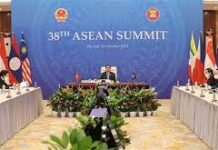Unilever Tea Kenya and CrossBoundary Energy are today announcing the signing of Unilever’s first solar services agreement in Africa. CrossBoundary Energy will be installing and operating a 600 kWp solar power plant at the company’s Kericho tea plantation, which will be operational in mid-2018.
CrossBoundary Energy has commissioned Solarcentury East Africa to design, procure, construct and commission the plant and partnered with SolarAfrica to act as a technical partner to manage project delivery and asset management.
This is the first commercial and industrial power purchase agreement (PPA) for Unilever in Africa. It is part of Unilever’s broader commitment to decouple its environmental impact from business growth and footprint.
The solar system is being financed and operated by CrossBoundary Energy through a 15-year solar services agreement with Unilever Tea Kenya. This will deliver substantial savings on its current power costs and reduce its carbon emissions by over 10,000 tonnes over the plant’s 30 plus-year lifetime.
Nicholaos Yiannakis, Managing Director of Unilever Tea Kenya says, “The deal with CrossBoundary Energy, brings us closer to meeting one of the aims of the Unilever Sustainable Living Plan – sourcing 100% of total energy across our global operations from renewables by 2030. We intend to be the first of Unilever’s facilities in Sub-Saharan Africa to be operating on 100% renewable energy by 2030. As a member of RE100, we are proud to demonstrate to our peers, that it is now possible to make commercially viable commitments to solar energy in Africa.”
Over 90% of the energy used on the Kericho factory already comes from renewable sources. Hydroelectric power turbines provide around 70% of electricity, and have been in use for nearly 100 years at the Kericho plantation.
The CrossBoundary Energy solar plant is expected to start producing power in mid-2018, and will mean that almost 96% of power at Unilever’s Kericho factory will be from renewable sources.
CBE will finance the installation of solar on the estate then operate and own the solar plant. Unilever will only pay for the power produced, receiving a single monthly bill that already includes all maintenance, monitoring, insurance and financing costs.
Matt Tilleard, Managing Partner of CrossBoundary Energy says, “Unilever were looking for energy options aligned with their Sustainable Living Plan. Under this solar services agreement we take on the financial, technical and operational component, leaving Unilever to focus on its core business. We’ve commissioned experienced engineering procurement and construction partners in Solarcentury and SolarAfrica, to build a world class facility.”
The plant is expected to create at least 12 jobs in Kenya via construction, operations and maintenance activities over the 15-year period of the agreement.
Guy Lawrence, Director of Solarcentury East Africa comments, “The Unilever PV plant will utilise single axis trackers which will not only increase the yield, but is the first ground mount PV tracking system in Kenya. We will be connecting the PV plant to Unilever’s hydropower circuit, involving the installation of an innovative control system to balance the hydro and solar. With our offices in Kenya, Solarcentury have the experience in-country to install the system to Unilever’s exacting requirements.”
Charl Alheit, SolarAfrica Chief Investment Officer, says, “Partnerships are the foundation of our business. This project demonstrated the strength of our strategic partners from the development side through to the installation and financing. We are delighted that Unilever Tea Kenya has joined the growing portfolio of companies embracing clean energy in Sub-Saharan Africa.”
In 2016, Kenya recorded the highest volume of sales in domestic off grid systems in Africa[1], and globally, was second only to India. However, adoption of solar by business has been constrained by high upfront costs and the perceived complexity of management and ownership of large solar installations. The PPA offering from CrossBoundary Energy removes these barriers and eases the adoption of solar by Unilever.
Matt Tilleard concludes, “Commercial and Industrial PPAs will help make solar power affordable and manageable for a range of Kenyan enterprises. With the increasing availability of finance for these assets, there is no good reason why we can’t see businesses in Africa outpacing their global peers in the adoption of commercial solar.”
























